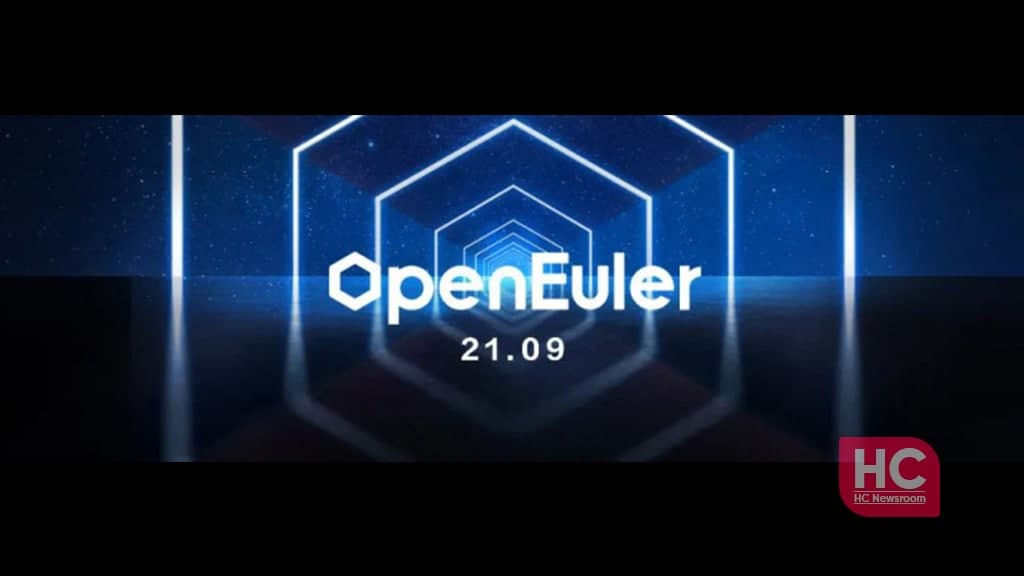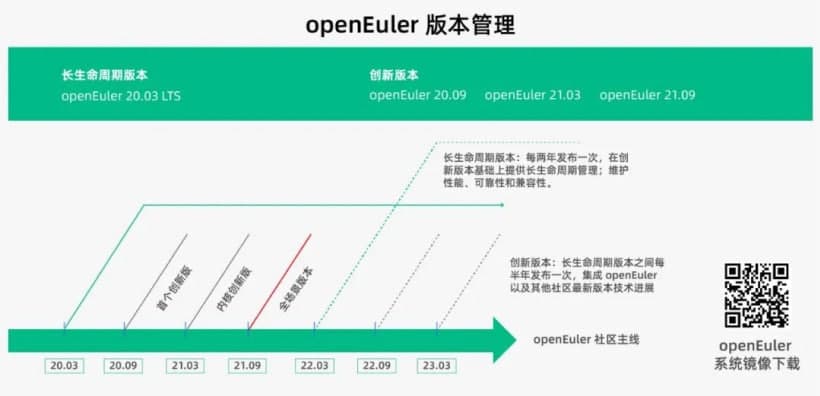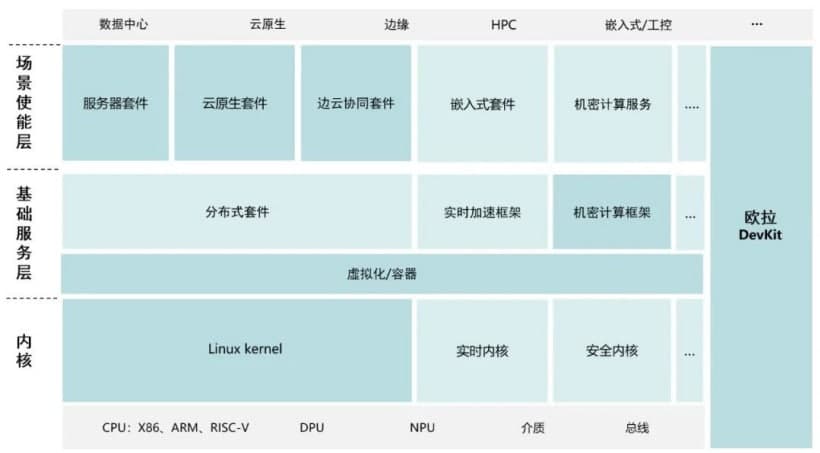News
OpenEuler 21.09 released, brings EulerFS, a new file system, kernel upgrade

On October 1, 2021, Huawei OpenEuler 21.09 was officially released. The latest version of the EulerOS open source project opens a number of new features for the developers. These features can be used to enhance the related application development for the platform.
According to the information, the OpenEuler 21.09 brings EulerFS, a file system for new media, continued to innovate the kernel, added container operating system KubeOS.
The latest version also secures containers and other large-particle features to consolidate the cloud base. Simultaneously, OpenEuler 21.09 Edge and openEuler 21.09 Embedded Version will combine the full scenario for the developer community
To be mentioned OpenEuler 21.09 is the first community version after Euler officially announced for open-source operating system derived for digital infrastructure.

With the increasing development of the community, the scene-oriented SIG has been continuously formed, and the application boundary of openEuler has gradually expanded from the initial server scene to cloud computing, edge computing, embedded, and more scenarios.
OpenEuler 21.9 Features and Architecture:
Core innovation
OpenEuler 21.09 enhances the related functions of cloud-native scheduling. For the mixed deployment scenarios of online and offline services in cloud scenarios, innovative CPU scheduling algorithms and OOM memory recycling algorithms are used to ensure real-time CPU preemption and jitter suppression by online services and support the safe and reliable operation of online services.
In terms of the file system, OpenEuler 21.09 adds the EulerFS file system. EulerFS is a brand new file system developed by Huawei and contributed to the community. For the new SCM media, it adopts soft update and dual-view technology to reduce the file system metadata synchronization delay. Compared with the EXT4 file system, the performance is doubled.
In terms of memory management, the memory hierarchical extension etMem adds a user-mode swap function. The cold memory eliminated by the strategy configuration is swapped to user-mode storage, which has better performance than kernel-mode swap and no business perception.

Consolidate the cloud base:
K8S has become the de facto cloud-native infrastructure base. The mainstream operating system vendors in the industry are all based on K8S, launching cloud-native scenarios dedicated container OS (such as Redhat RCHOS, AWS BottleRocket, etc.), providing management and operation and maintenance experience consistent with business containers.
OpenEuler 21.09 Keeping up with the latest technology trends in the industry, Huawei has contributed its original containerized operating system KubeOS to the community. It has the advantages of running memory consumption <150M and restarting time <15 seconds.
OpenEuler 21.09 combines StratoVirt, iSulad, and ShimV2 to form a secure container solution, providing a lightweight and secure execution environment for applications, isolating the security risks between the container and the host operating system, and between the containers.
This solution is contributed by Huawei to the community. Compared with the traditional Docker+QEMU solution, the noise floor and startup time are optimized by more than 40%.
KubeSphere is an application-centric container platform built on top of K8S. It was initiated by Qingyun Technology and supported and maintained by the KubeSphere SIG of the Euler open source community.
The OpenStack version is updated to Wallaby. Wallaby is the latest stable version released in April 2021. It contains important updates for core projects such as nova, kolla, cyborg, and tacker. Co-sponsored by Unicom Digital, China Telecom, and Huawei, and supported and maintained by the OpenStack SIG, the open source community of Euler.
Eggo is a dual-plane cluster deployment tool based on K8S. It provides efficient and stable cluster deployment capabilities and supports multiple deployment modes such as single-cluster multi-architecture, online and offline.
Combining GitOps management capabilities and sensing cluster configuration changes, Eggo drives the unified and efficient deployment of the cluster OS, reducing the deployment time of 100 nodes from a few hours to less than 15 minutes. Eggo is researched and developed by Huawei, and Cloud-Native SIG will be responsible for development and maintenance in the future.
Explore full-scene innovation:
OpenEuler 21.09 released openEuler 21.09 Edge for edge computing scenarios. This version integrates the KubeEdge and edge cloud collaboration framework, and has basic capabilities such as unified management and distribution of edge cloud applications.
In the future, it will enhance AI ease of use and scenario adaptability through enhanced intelligent collaboration, and enhance service collaboration to achieve cross-edge cloud service discovery and traffic. Forwarding, enhancing data collaboration, and improving southbound service capabilities.
OpenEuler 21.09 released the ultra-lightweight embedded version OpenEuler 21.09 Embedded for embedded scenarios. The mirror image of this version is less than 5M, and the startup time is less than 5 seconds. It provides basic capabilities such as lightweight, safe, and lightweight containers.
It supports ARM32 and ARM64 chip architectures. In the future, it will cooperate with Euler Open-source community ecosystem partners, users, and developers to gradually expand support Chip architectures such as PowerPC and RISC-V to increase deterministic delay, industrial middleware, simulation systems, and other capabilities to create operating system solutions in the embedded field.
OpenEuler 21.09 Edge and OpenEuler 21.09 Embedded are the exploration and expansion of Euler’s open source operating system scenarios, providing preview technology innovation experiences, and the community will continue to enrich the capabilities of edge computing and embedded scenarios.
Middleware & Desktop Environment
OpenResty has now been ported to the OpenEuler 21.09 version. OpenResty is a high-performance web platform based on Nginx and Lua. It is used to conveniently build dynamic Web applications, Web services, and dynamic gateways that can handle ultra-high concurrency and high scalability.
Thanks to Luo Zexuan and Wen Ming from the Apache APISIX community for their contributions in this OpenResty migration, so that OpenResty can run smoothly and efficiently on the Euler open-source operating system.
UKUI is a lightweight desktop environment based on the Linux distribution developed by the Kylin team. In OpenEuler 21.09, UKUI adds a Chinese input method and multimedia support.
Tongxin Desktop Environment is abbreviated as DDE, which is a safe, stable, and easy-to-use Linux desktop environment developed by Tongxin Software. In OpenEuler 21.09, DDE added support for drawing boards, music and cinema applications.






